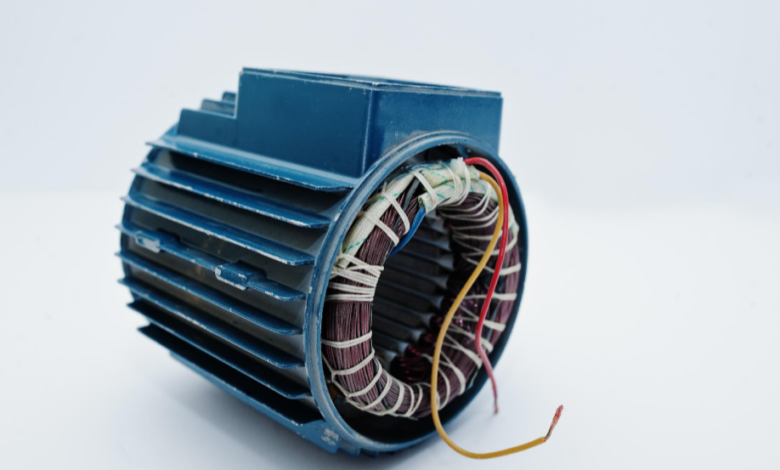How a Faulty Blower Motor Resistor Affects Your Car’s Heating and Cooling Efficiency

Your vehicle’s heating, ventilation, and air conditioning (HVAC) system is designed to keep you comfortable regardless of the weather outside. At the heart of this system is the blower motor, which pushes air through the vents to regulate cabin temperature. But controlling the speed of this blower motor is a small, often overlooked component known as the blower motor resistor. Despite its size, the resistor plays a crucial role in managing airflow, and when it malfunctions, it can seriously compromise your vehicle’s heating and cooling efficiency.
In this article, we’ll explain how a faulty blower motor resistor impacts your car’s HVAC performance, the symptoms to watch for, and why timely repair is essential for your comfort and safety.
What is a Blower Motor Resistor?
The blower motor resistor is an electrical component that controls the speed of the blower motor fan. It does this by varying the electrical current flowing to the blower motor, which in turn adjusts the speed at which the fan spins. Typically, this resistor provides multiple levels of resistance to create different fan speeds—from low, medium, to high.
Without the resistor, the blower motor would only operate at full speed, making it impossible to control the airflow inside the cabin efficiently. In most vehicles, the resistor is connected directly to the HVAC control panel and the blower motor, making it an essential link in the system.
How a Faulty Blower Motor Resistor Affects Your HVAC System
When the blower motor resistor fails, it disrupts the current flow to the blower motor. This can cause several issues:
1. Limited or No Fan Speeds
One of the most common effects of a bad resistor is the loss of certain fan speeds. Often, the blower motor will work only at the highest speed, bypassing the resistor altogether, or it might stop working on all speeds except one.
Why does this happen? When resistor coils burn out or short circuit, they break the electrical path for lower speeds, leaving only the full-speed circuit intact. This means you lose the ability to fine-tune the airflow inside your car.
2. Reduced Heating and Cooling Efficiency
Because the blower motor controls how much air is pushed through the vents, a malfunctioning resistor leads to inconsistent or inadequate airflow. When the fan is stuck on low or high only, or doesn’t work at all, the heating or cooling effect inside the cabin is compromised.
- In cold weather, insufficient airflow from the heater makes it hard to warm the cabin quickly, causing discomfort and potential safety hazards like fogged windows.
- In hot weather, reduced fan speed results in poor air conditioning performance, leaving you sweaty and uncomfortable.
3. Intermittent Fan Operation
Sometimes, a failing resistor causes the blower motor to operate erratically—turning on and off unexpectedly or varying speeds without input from the driver. This inconsistency can be frustrating and make it hard to maintain a stable cabin temperature.
4. Complete Blower Motor Failure
In some cases, a faulty resistor can cause the blower motor to stop working altogether. Since the resistor controls electrical flow, a failure may cut power completely, leaving you with no airflow from your vents.
Why Does the Blower Motor Resistor Fail?
Understanding the reasons behind resistor failure can help you prevent it. Common causes include:
- Overheating: The resistor generates heat as it regulates current. Over time, excessive heat can cause the resistor coils or wiring to burn out.
- Moisture and Corrosion: The resistor is often located near the blower motor inside the HVAC housing, where it can be exposed to moisture, leading to corrosion and electrical shorts.
- Wear and Tear: Like any electrical component, the resistor degrades with age and repeated use.
- Electrical Issues: Voltage spikes or wiring problems can cause premature resistor failure.
Signs of a Faulty Blower Motor Resistor
If you notice any of the following symptoms, your blower motor resistor might be failing:
- Blower fan only works on one speed (often the highest)
- No air comes out of the vents even though the AC or heater is turned on
- Fan speeds change without adjusting the controls
- Burning smell coming from the dashboard area
- Intermittent operation of the blower fan
Why Timely Repair is Essential
1. Maintain Cabin Comfort
The most obvious reason to fix a faulty blower motor resistor is comfort. You rely on your vehicle’s HVAC system to stay warm in winter and cool in summer. Without proper airflow control, you lose the ability to regulate temperature effectively.
2. Ensure Safety
Poor heating performance can lead to fogged windows, reducing visibility and increasing the risk of accidents. A malfunctioning blower motor resistor that prevents proper defrosting should be repaired immediately for safe driving conditions.
3. Avoid More Expensive Repairs
If ignored, a bad resistor can cause further damage to the blower motor or other electrical components. Replacing a blower motor is usually more expensive than replacing the resistor. Timely repair can save you money in the long run.
4. Prevent Complete HVAC Failure
Since the resistor is integral to the fan operation, fixing it promptly ensures your entire HVAC system continues to function as designed, keeping your vehicle comfortable year-round.
See Also: Mutf_In: Sbi_Tech_Oppo_11l6xtb
How to Fix a Faulty Blower Motor Resistor
Replacing a blower motor resistor is typically straightforward and affordable. The resistor is usually located near the blower motor under the dashboard or behind the glove compartment. Here’s a general overview:
- Disconnect the vehicle battery
- Access the resistor by removing panels or the glove box
- Unplug the wiring connector
- Remove screws holding the resistor in place
- Replace with a new resistor and reassemble
Because locations vary by vehicle make and model, consulting your owner’s manual or a repair guide is recommended. If you’re not comfortable working with vehicle electrical systems, seek professional assistance.
Conclusion
The blower motor resistor may be a small and inexpensive component, but its impact on your vehicle’s heating and cooling efficiency is significant. A faulty resistor disrupts blower fan operation, reduces HVAC performance, and can lead to driver discomfort or even safety hazards. Recognizing the signs of resistor failure and addressing them promptly ensures that your vehicle’s climate control system works reliably, keeping you comfortable and safe no matter the weather.
Don’t let a simple resistor issue ruin your driving experience. Regular HVAC system checks and timely repairs will keep your car’s heating and cooling running smoothly for years to come.





